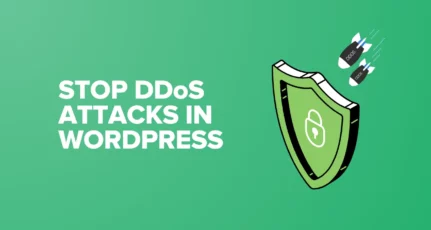
When considering important aspects of the SEO of any site, the permalink plays a major role in overall optimization. A permalink is a permanent link of your page and posts, and it doesn’t change with time. By default, WordPress offers permalinks like this:
https://www.shoutmeloud.com/?p=123
This type of permalink is not Search Engine friendly, so most newbie bloggers just starting with WordPress fail to create a site that is optimizing WordPress permalinks for SEO because they are using the default permalinks.
In this guide, I will teach you which permalink structure is the best, and I will also look into other suggested WordPress permalink structures and why you should avoid them.
Which permalink structure is recommended for optimal SEO?
One of the major on-page SEO factors is having your keyword in your post URL (permalink). As I’ve just discussed, the default WordPress permalink is not SEO-friendly, so when you install WordPress for the first time and start blogging without making a change to that default, you are blogging with a permalink structure that is not SEO friendly.
As previously mentioned in my WordPress essential settings guide, your permalink is the first thing you should change when setting up your blog for the first time.

You can find various permalink settings under WordPress dashboard > Settings > Permalink. A few suggested permalink structures are:
- Domain.com/Category/Post-name
- Domain.com/Postname (/%postname%/)
- Domain.com/postname/numeric-ID
My favorite and suggested permalink structure for a WordPress blog is Post Name. Post name permalinks are short, sweet and have nothing extra which will affect your on- page SEO score.
Many bloggers recommend using Category in a permalink which is also fine, but only when your category name is short and meaningful, and you are not using multiple categories/posts. I’m not a big fan of using Category in permalink structure, because depending on your indexing settings, it may lead to duplicate content on your WordPress blog.
Another permalink method which I highly recommend avoiding is that of using dates in your permalink. This takes away your capability of republishing your post at later date. The permalink remains the same, but when you republish the post, it does not make sense because you will still be using the old date in the permalink.
WordPress Permalink for Google News:
If you are running a news-based site such as a site having a focus on current affairs, Bollywood or Hollywood news, technology news, etc., you need to have a three-digit unique ID in your permalink as mentioned in the Google news submission requirement.
/%postname%-%post_id%/
Some time back, Matt Cutts, a Google engineer also changed his WordPress blog permalink structure to domain.com/post-name and here is an explanation from him:
He didn’t mention anything directly related to the SEO benefits of using a simple WordPress permalink, but he did mention the fact that such a permalink helps to keep things simple.
Read: How To Write SEO Friendly Content
Take-away and other permalink SEO tips:
- Use simple permalinks (domain.com/postname)
- Prefer dashes over underscores (Source)
- Remove stop words from permalinks (such as “is” or “are)
- Never change permalinks after publishing, and if you do so for some reason set up a 301 redirection from the old URL to the new URL using .htaccess
- Use your keyword in your permalink
A couple of months back I changed the permalink structure of an existing site and made sure it was a 301 redirection, but somehow after changing the permalink structure my site traffic was affected. So, if you have a huge site I recommend that you avoid changing your permalinks unless it is completely unavoidable.
You can refer to this guide for a discussion of how I changed the permalink structure for an existing site.
Another big debate regarding permalinks is using : www or non- www in the URL of your domain.
I used to prefer www in my permalinks, but since the rest of the world is going to the short and simple version, I prefer using non- www in my site name (meaning I simply do not use the “www” portion of the former URL). This gives you more space in the permalink, and with search engine indices only allowing 66 characters in a permalink, the three fewer characters can be helpful as well.
If you choose the non-www version of domain structure, make sure the www version of your site is properly redirected to the non-www version to avoid a WordPress duplicate issue.
Example: http://www.wphostingdiscount.com —- >> http://wphostingdiscount.com
I also recommend that you set your preferred domain from your Webmaster tool. You can learn more about this in my previous post on: Google Webmaster tool preferred domain settings.
From now on, whenever you are setting up a new WordPress blog, make sure you use an SEO-friendly WordPress permalink structure rather than any random permalink.
If you have any questions regarding WordPress permalinks, let us know via the comments section below.
If you enjoyed reading this article, feel free to share it on Facebook, Twitter and Google Plus, and don’t forget to check my WordPress guide for more WordPress tips.






I think that %postname% is the best part for permalink for Tech Bloggers but if someone here runs a news blog than for them they should go for %year%/%month%.
Hi, sir! i use “/%category%/%postname%.html” URL structure. It’s good for SEO or not?
Hello Harsh,
I could see that you are using different permalink structure for different posts.
For example,
For normal articles you have permalink structure like https://www.shoutmeloud.com/post-slug.html
For Deals it is : https://www.shoutmeloud.com/deal/post-slug
For downloads : https://www.shoutmeloud.com/downloads/post-slug
How you are getting these different permalink for different posts? Have you shared any tuturial in the past for same? if yes, please let me know the URL!
@Abdu
These are because of WordPress custom post type feature.
https://www.shoutmeloud.com/wordpress-custom-post-type-plugins.html
Hello and thank this great article. I have bilingual website, and I have been using the post name structure in the past years. Now when I want to add a link on my youtube videos to my website, the English version is OK, but youtube does not recognize the Persian alphabet included in my link. Let me give you an example of one of my Persian links:
http://dreamlandimmigration.com /fa/شهروندی-کانادا/
Now that I have to change the structure of the permalink, how bad is it for SEO and what other least harming permalink structure do you suggest?
Thank you very much.
Hello,
How to include the sub category base in the url, I mean Website,com/category/subcategory/post
Thanks
Amit
Just use your permalink as /%category%//%postname%/ and if your post is on a subcategory it will be automatically displayed like I have it on my blog trickspit[dot]com
Hi Harsh,
I am using http://www.domainname.com/month and name structure for my blog (that contains 50 posts ). Do u recommend this structure ?
Suppose, I am changing it to domainname.com/postname, how can I manage SEO ?
Good advice on using permalink , I have used .html the end of %postname% so it look like a simple html file , I had some old pages but didn’t change the .htacces file for redirect instead i Used redirect plugin for implementing 301 redirection to new pages. Its very easy when you have large number of pages to be redirected.
I’m using “site.com/Year/month/text” structure for one site.
And using “site.com/text” structure for one site. Both are performing same.
But I recommend the “site.com/text” structure, because it is simple to understand.
Hello Harsh,
Timely post and nicely touched down every single aspect. I own a News Site hosted on WordPress and using /%category%/%postname%/ in the URL structure. And I want to migrate it to Day and name (/2016/01/22/sample-post/) since I read some articles that states it will increase server up-time speed. I’ve more than 250 posts on the website and older than one year is it a good idea to change the Permalink parameter?
Hey Swapan,
I would not advise you to change the permalink. /%category%/%postname%/ is the most SEO friendly permalink.
i have wordpress website . and i was daily visitors 700 around per day . and i was used permerlink postname. but some how visitor going down to 400 and than i changed my permerlink to date post name. after done this no any incresse in my visitors . from that tym from now my visitors 400 450 per day . so please let me knoe may i change my permerlink date post name to postname again . plaz let me know asap
thanks
Hey Yogesh,
Well, Post name permalink is the best structure. Date/post name is recommended only for news website where they have multiple posts in a day. ALao, if you are writing evergreen post, date permalink is not advisable. I would advise you to change it back to postname. and then redirect your old permalinks to your new ones. To do that, you have to add redirects to your .htaccess file.
Hi Harsh, thanks for this nice Article,
I got only 1 question, please give me advice it would help alot.
well, I got many websites, one of them is http://8vids.com
from start I had default permalinks from WP, then I changed to /%postname%/
after a wile I decided to remove the trailing slash from Premalinks “/”
so now I got permalink scheme like /%postname%
without slash at the end “/”
after that I had a problem with HomePage Canonicals, even if I change the default permalink to “without trailing slash at the end” anyway the Homepage got canonical url like “http//8vids.com/”
after a week of hard searching on net, I found a way to remove the trailing slash from all canonicals with Yoast plugin and also with simple code to add to theme`s functions.php.
so now I got my problems fixed as I understand, the URLs and Canonicals got permalink that I like,
example http://8vids.com or http://8vids.com/anime (without trailing slash at the end)
so my question is, is it ok to have this kind of Permalinks scheme? with this works without problems?
and 1 more thing that worry me much, when I edit my homepage, the permalink url under page title got this
http://8vids.com/
again trailing slash at the end of homepage url ((
I think now maybe Canonicals set to “without tailing slash at the end” but homepage still got URL with Slash at the end?
this will not make a mess?
thanks much
Per the article suggestion, does anyone know why /%postname%-%post_id%/ or if /%postname%/%post_id%/ is preferred?
@Mayria
It’s useful when you want to submit your website to Google news.
As to me I prefer post-name/ only as the permalink structure including a category name will deliver long URL address as it makes simple and looks smart.
One of the problem with adding categories to the Permalink structure is that, same post in multiple categories can cause duplication which will eventually affect SEO badly. I recommend “postname” only. That’s the safest option in my opinion.
Hey Shouter why you are using .html after permalink?
It is more SEO friendly 🙂
Is there limit on length of permalink? can i use long permalink slug?
Really good post Harsh. I have a simple question, when my main keyword is the name of my client (e.i John Doe) what is the best permanent link? Maybe -> /%postname%/%author% of course the author is John Doe …
I’m not sure that is could be the best option because the %author% is repeated in each post + postname
Thanks
sir
I have changed my permalink setting after publishing 20 posts in my website, so could you tell me changing permalink setting will really affect my seo traffic??????????
Hey Harsh
What if we add .html after %postname% like /%postname%.html ?
Will it add any extra benefit or will it harm the ranking ?
sir is there any way to change permalink of a previous written post ??
because when I am trying to change it,changes are not taking place,please guide me